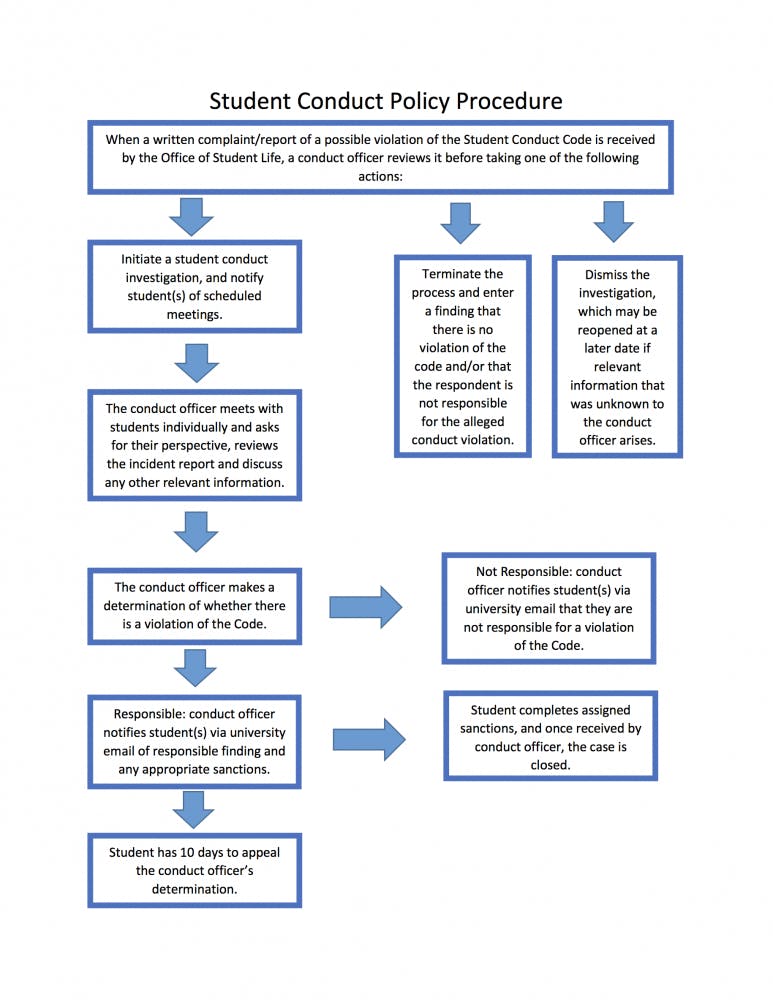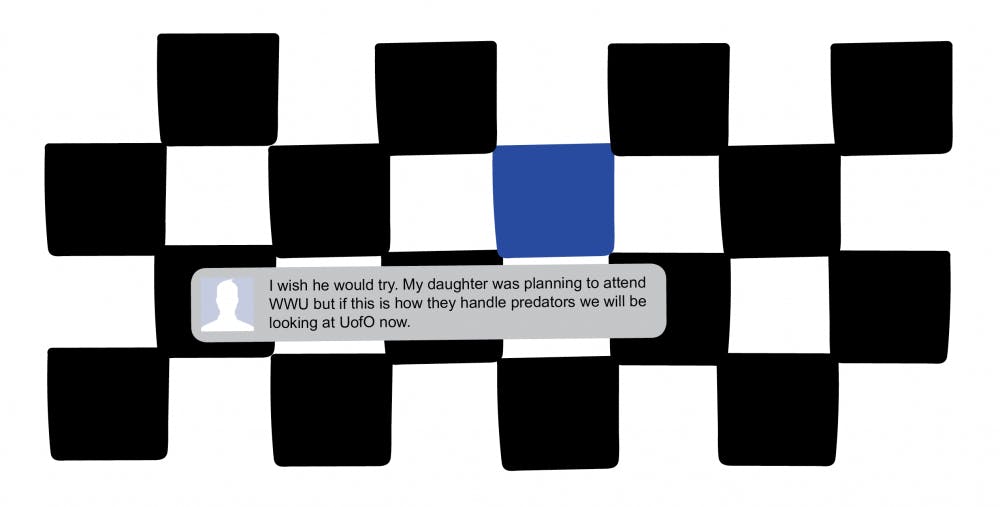By Stella Harvey, Ray Garcia and Zoe Buchli
This story is the third section of a four-part investigative project from an advanced reporting course taught by Betsy O’Donovan. We contacted DeShaun Dowdy multiple times to set up an interview to provide him a chance to respond to the allegations being made in this series. Dowdy declined to comment.
Content Warning: sexual assault.
The Office of Student Life
Rules are made for a reason. Behind every official policy and procedure, there is a purpose - whether that is to enforce disciplinary measures or maintain the safety of others.
With that said, Western’s policies and procedures have befell public scrutiny following a post on social media.
Michael Sledge, Western’s assistant dean of students, sent DeShaun Troy Dowdy an email on Jan. 3, 2019 saying he had been placed on a temporary suspension. The email came three days after the Lindsay Noel’s Facebook post.
In the email provided by Dowdy, Sledge explained the interim suspension included a trespass from all of campus. He said the behavior Dowdy was accused of on social media, if true, violated three sections of the student code of conduct.
The Office for Student Life is in place to hold students who engage in misconduct or violate Western’s Student Conduct Code accountable. Sledge said the most common violations include using alcohol, drugs or disruptive behavior.

Read the other stories in this series Behind the systems: Western’s admissions policies leave doors open for felons on campus Behind the systems: Facebook post accuses former Western student of sexual misconduct Behind the systems: Student questions the way Western handles sexual assault allegations
University Police A university police car parked near the library, blue light call boxes in the parking lot and fire extinguishers in every building. These campus safety precautions may melt into the background for students leading busy lives, until they feel unsafe. Western has offices, policies and procedures in place to keep students safe. But how does Western’s University Police fit into the equation? At the start of a conduct investigation, the dean of students can place a student on interim suspension if the student poses an immediate threat to campus safety. Despite the language in the policy, Michael Sledge, the assistant dean of students, said he is tasked with imposing interim measures. When a student is temporarily suspended, they are also trespassed from all of campus by the Office of Student Life. It’s important to note the two kinds of trespasses that can be given: administrative and criminal. According to Darin Rasmussen, chief of University Police, UP does not get involved with administrative trespasses. If an administrative trespass is issued, it’s possible that UP wouldn’t be notified unless there is violent or criminal activity. “It’s always better if we are [notified] because then if we get called we know what footing we’re on,” he said. “Sometimes people will think, ‘If the police show up he’s going to get arrested.’” If university officers see an individual on campus in violation of their trespass, they will remind the student of their status and inform the assistant dean of students. For an administrative trespass, Rasmussen said there would not be an arrest. In contrast, criminal trespasses officially notify an individual that they are not allowed to be in a certain area of campus based on their previous behavior, he said. For them to be in that area is a crime, which could lead to an arrest. Rasmussen said although unlikely, a student could receive a criminal trespass. Usually student behavior is addressed through the Student Code in the Dean of Students Office. Rasmussen said UP almost exclusively uses trespasses for members of the community, outside of the university. “By being students, you have more rights to access the campus than someone who’s not a student,” he said. Rasmussen currently assumes the role of director of public safety, making him the president's designee for lifting a criminal trespass. Western’s UP does not have a written policy for how to impose criminal trespasses, Rasmussen said. It is up to the discretion of the responding officers. “The officers are able to assess the totality of the circumstances at the time and if [the situation] warrants a criminal trespass,” he said. A person who has received a criminal trespass can appeal to the director. Before university officers trespass someone, Rasmussen said they will usually give the individual a warning depending on the seriousness of the behavior — merely acting strangely doesn’t make the cut. “It's not a crime to act unusually. College campuses are full of people who act unusual,” he said. “What's this person doing? Is it a crime? Is it dangerous? … If the answer is no, then that's how [the case] gets closed out.” In situations where officers must assess an individual’s overall safety risk to the community or to themselves, Rasmussen says they are constantly trying to evaluate the situation and balance the rights of the individual versus the rights of the community. Once someone is criminally trespassed, he said that information is entered into a computer system and flagged so that if they are contacted on campus the existence of the trespass status is made known to University Police. DeShaun Troy Dowdy, a Western student, was given an administrative trespass on Jan. 3, 2019 after he was accused of being a “sexual predator and dangerous” in a Facebook post at the end of December 2018.






